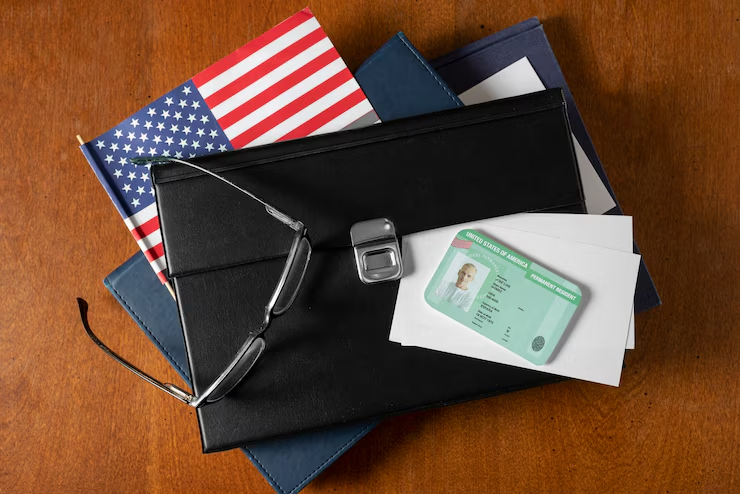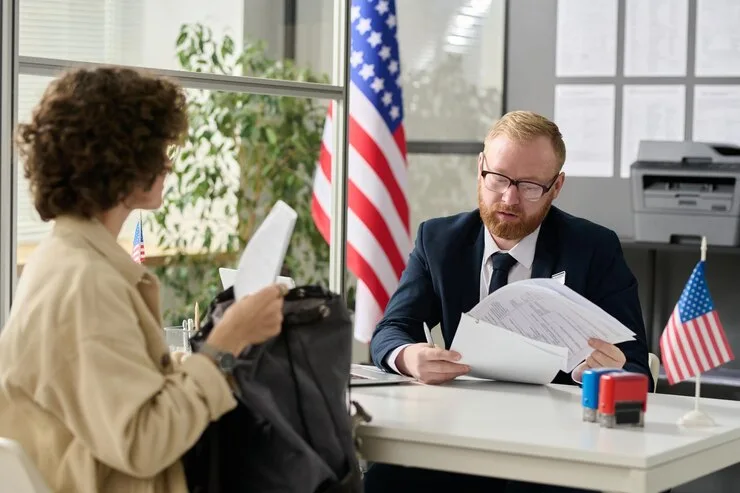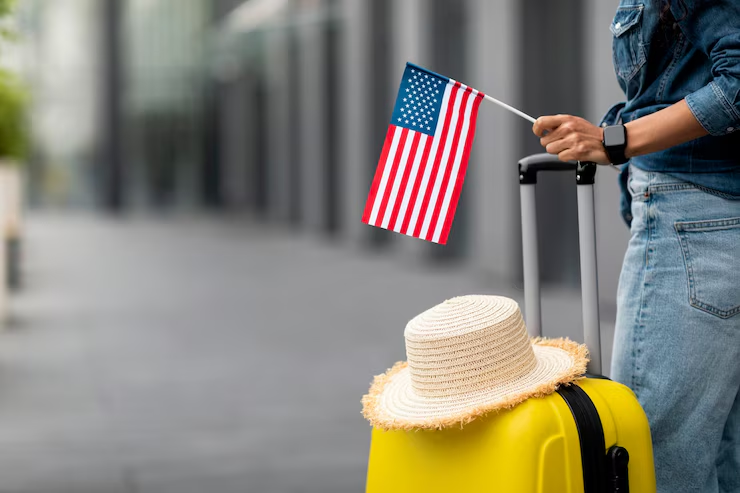Introduction
The United States stands as a highly popular destination which welcomes massive numbers of visitors including tourists and both business and student Travel each year. Any traveler who wishes to see the Grand Canyon and tour New York and Los Angeles and conduct business in the country must be familiar with U.S. travel laws and regulations.

Following U.S. entry laws allows Americans to travel comfortably while disregarding these laws could lead to entry prohibition or substantial penalties up to deportation. Before starting their travel all visitors need to understand respective visa rules alongside customs mandates and both health protocols and local legal requirements.
Visa and Entry Requirements
Visa Waiver Program (VWP)
Foreign citizens from 40 authorized nations can access the United States through its Visa Waiver Program (VWP) without requiring a visa for tourism or business visits. All travelers who wish to participate in the Visa Waiver Program need to obtain Electronic System for Travel Authorization approval before taking their flight. The Electronic System for Travel Authorization automates security risk screening for visitors entering the country. Entry without a visa is possible through ESTA approval yet Customs and Border Protection (CBP) officers at the entry point maintain complete authority to decide whether travelers gain U.S. admission
Types of Visas
Searchers who cannot take advantage of VWP requirements must secure a visa to enter the United States. Different visas exist according to the reasons visitors come to the United States. Business professionals seeking meetings and conferences as well as negotiations require a B-1 visa to enter the United States. The B-2 visa provides entry to visitors who want to see the country US as tourists and want to handle medical matters or connect with relatives in the United States
Visa Interview and Documentation
The majority of visa seekers must appear at U.S. embassy or consulate facilities for scheduled interviews. During the interview administrators need applicants to supply required documents and fulfill questions about their trip intentions. To obtain a US visa applicants need to submit four standard documents which consist of passport and DS-160 form and photo with evidence of financial capacity and trip schedule.
Other supporting documents such as student enrollment information or host invitation letters will be necessary for specific types of visa applications. An applicant whose visa interview succeeds will likely get approval even when they need added scrutiny from immigration agents and must provide truthful responses in their statements.
Customs and Border Protection (CBP) Rules
Declaring Items
Every traveler should finish customs forms where they must properly reveal all the items they wish to bring into the country. Individuals must notify CBP officers about their possession of food items combined with plants and alcohol plus substantial sums higher than $10,000. The failure to properly disclose restricted or prohibited product reveals ownership to Customs agents could result in asset seizure and financial penalties and judicial penalties. Customs officials in the U.S. undertake strict evaluation of imported agricultural products because they aim to stop the spread of diseases so specific foods including fruits, vegetables and pet products may be excluded from entry.
Aside from firearms and medication travelers need to know that luxury items and other specific goods are also banned for importation into the United States. All medication items need proper identification labels together with required prescription documentation. Gift and souvenir-carriers must be aware of their value because their duty-free limits determine whether they will face additional tax or fee charges.
Prohibited and Restricted Items
Travelers must adhere to strong restrictions set by the United States concerning the importation of items. All products category including controlled substances and fake merchandise with restricted drugs are completely outlawed for entry. The possession of cultural artifacts together with endangered species products and more than stipulated amounts of tobacco or alcohol could trigger bureaucratic limitations. All visitors must consult CBP website information when preparing their belongings to follow regulations and prevent penalties.
Immigration and Border Control Process
Every traveler needs to pass through customs and immigration control procedures when arriving at destination. When entering the United States CBP officials need to check travel documents and they will ask about visit purposes and examine hotel plans and stay duration and financial capability. All questions during the immigration process require truthful answers supported by necessary documentation when an officer requests proof.
Provision of incorrect information to immigration officials during border control will lead directly to deportation and may cause future bans from entering the United States. All travelers must prepare themselves for automated identification procedures which involve fingerprint scanning in addition to photo records.
Health and Vaccination Requirements
The United States government does not force immigration-related vaccinations upon most visitors who enter the country. Proof of vaccination against yellow fever becomes mandatory for visitors who come from areas where this disease exists endemic. Additional health screening protocols with quarantine restrictions and proof of vaccination became necessary for disease prevention purposes during international health emergencies like the COVID-19 global pandemic.

Transportation and Driving Laws
Public Transport and Taxis
Resident communities of the major U.S. cities have access to multiple transportation systems which include metro trains and buses alongside ridesharing companies Uber and Lyft. Different urban areas have contrasting public transportation systems because New York and Washington D.C. alongside Chicago possess complex transit networks but other municipalities mainly use buses and taxis for mobility. Before traveling to a new place people should look into public transportation methods to choose efficient ways for better organization and budget control.
Driving Laws
The driving laws of individual states require examination by people who want to drive in America. The use of an International Driving Permit (IDP) with a home country license permits driving for foreigners in numerous states yet some states need supplemental documentation. States maintain their own regulations regarding driving regulations making speed regulations and seatbelt usages different from one jurisdiction to another.
Accommodation and Short-Term Rentals
Individuals who use hotels along with Airbnb rentals must understand the regulations which apply specifically to these types of accommodation. Some municipal governments control temporary rental operations by making hosts follow permission regulations and local zoning requirements. People traveling must understand hotel rules regarding cancellations as well as security deposit rules and municipal laws because this knowledge prevents paying unexpected charges.
Consumer Rights and Shopping Regulations
Consumers in the United States have legal consumer rights that enable them to make refund and return claims. Several retailers maintain different return policies and stores do not factor in sales tax to their marked prices which surprises buyers from abroad. Every state has a different tax rate that visitors must take into consideration during their purchase because they will face additional charges at the cash register.
Emergency Contacts and Legal Assistance
Any person traveling should keep emergency hotline information readily available. The standard universal emergency call in America route is 911 that connects users to police departments as well as fire teams and medical rescue units. Travelers should seek to identify the locations of local embassies and consulates because the information helps in obtaining help after passport loss or dealing with legal matters or emergencies. Trapped or detained travelers possess the right to law defense and must identify and reach out to their legal representative right after detention occurs.
Final Thoughts
Travelers should properly plan before their USA trip since it creates beneficial conditions to steer clear of legal troubles and everyday hassles. Travellers who respect visa requirements together with customs regulations and transportation law and consumer rights will experience a hassle-free trip to the US. A combination of knowledge about U.S. rules and due respect for these laws leads to optimal visitor experiences in this globally unique nation.
